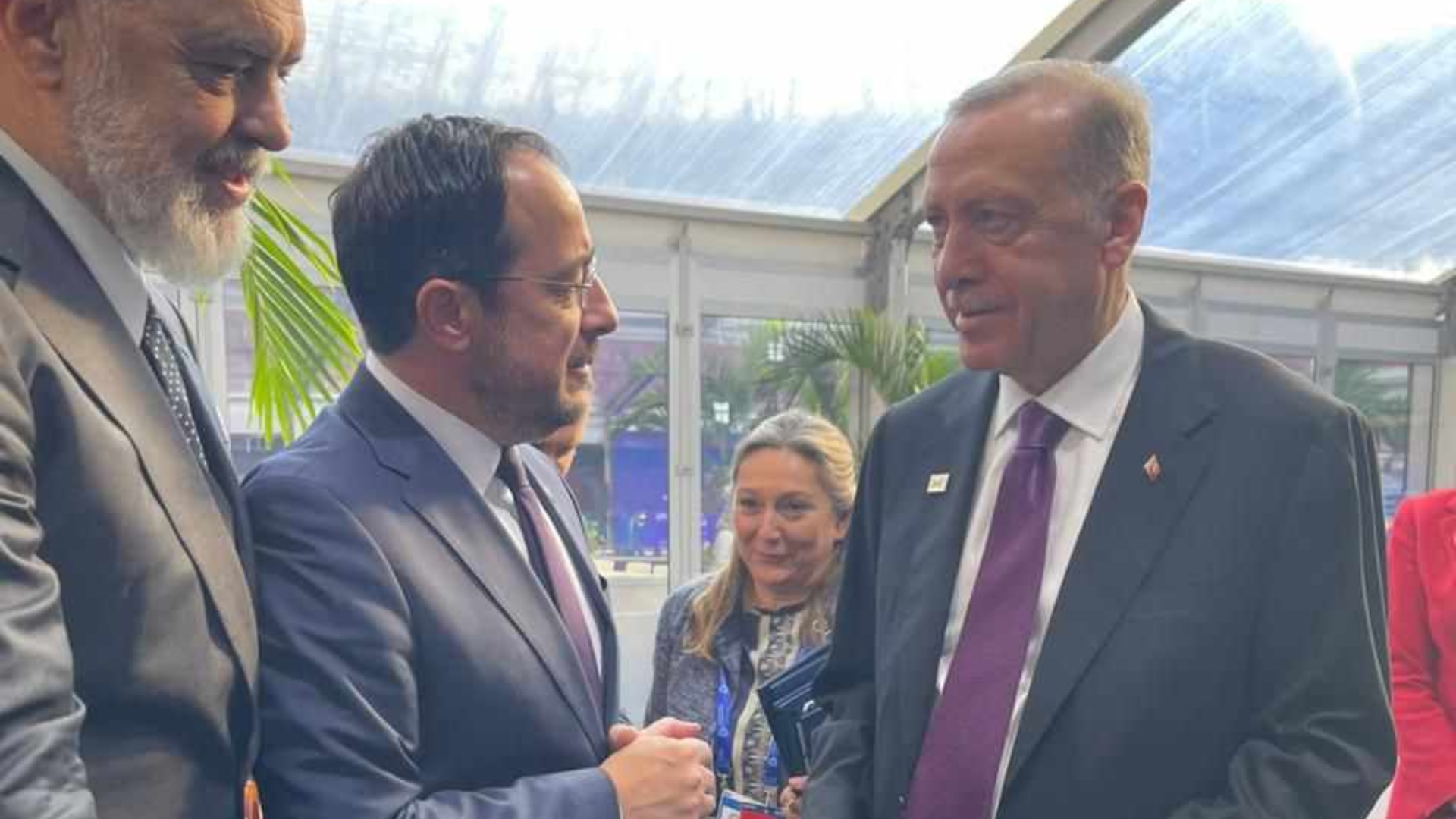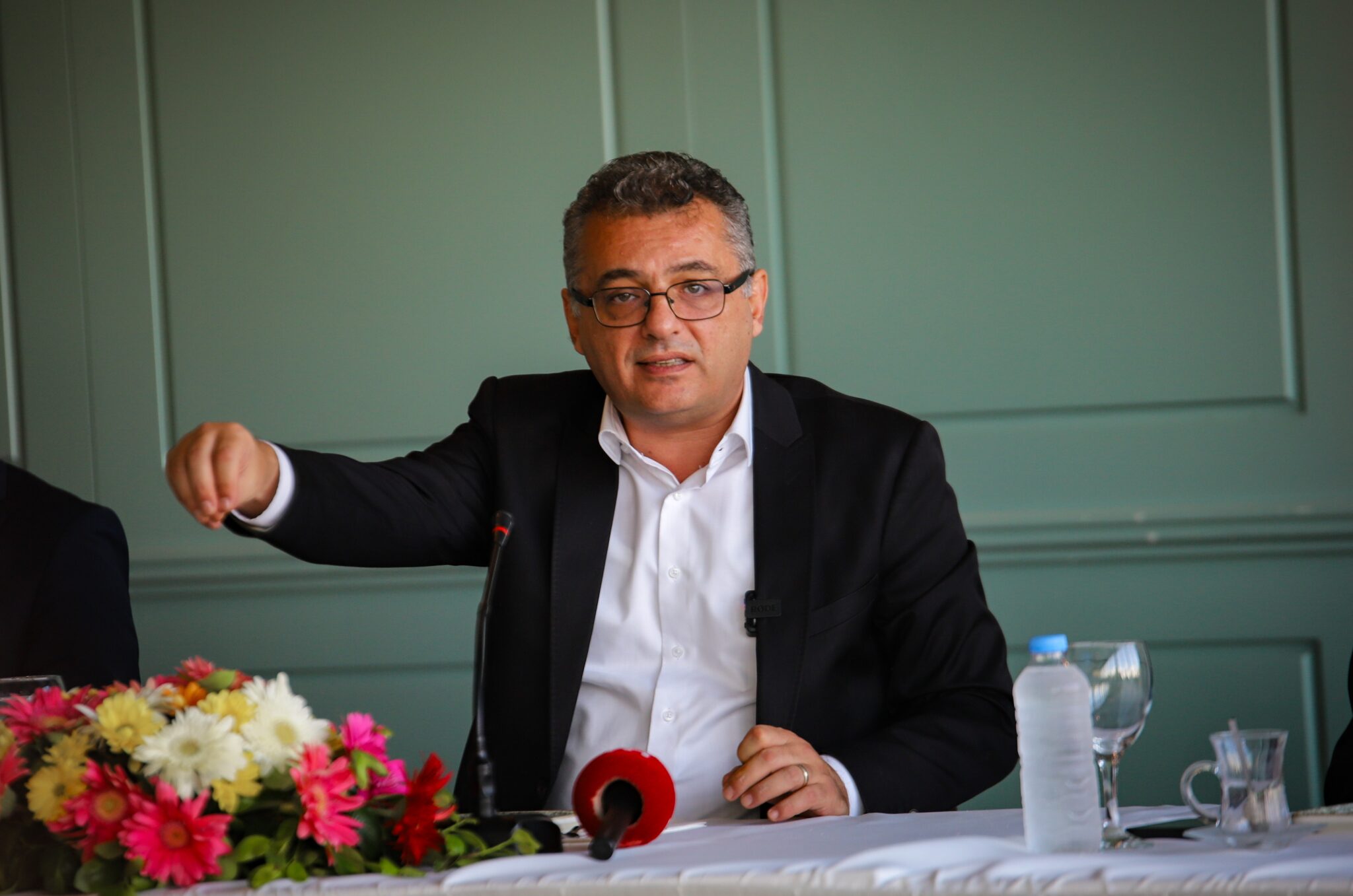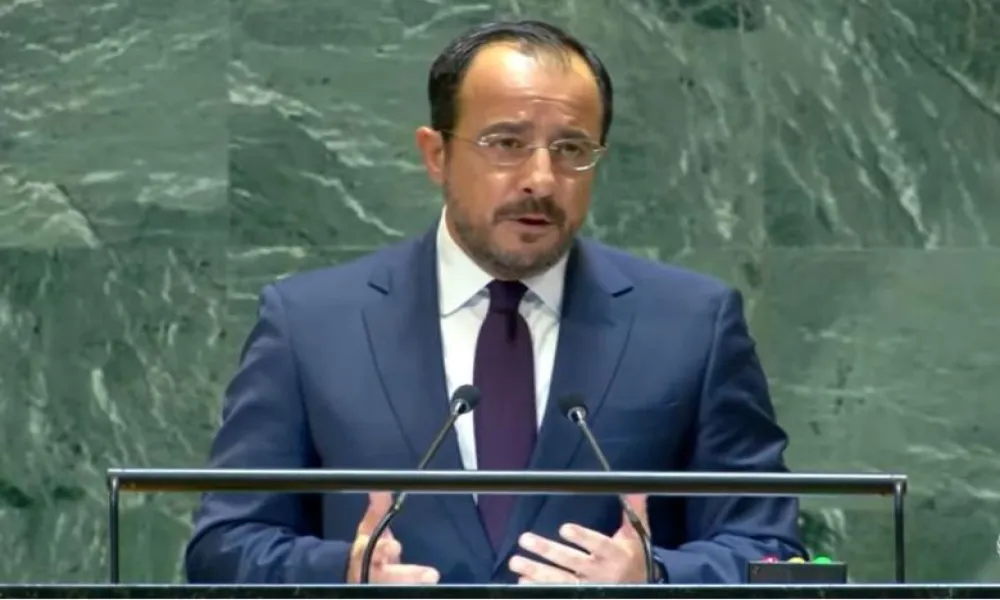The past week was essentially devoted to the UN. Before the General Assembly, all the world’s leaders paraded. If we were to summarize the content of most of their speeches and messages, it would not be wrong to say that there was an overwhelming sense of anxiety. The United Nations is faltering financially and, above all, politically. International law, President Christodoulides also pointed this out in his speech, is no longer a point of reference nor a tool for resolving disputes. The UN Secretary-General, António Guterres, as some bitterly joke, has been reduced to a hotel manager, at times a butler of a giant banquet where everyone negotiates bilaterally the issues that matter to them and, above all, promotes their own interests.
Some push it further, calling it a circus with the U.S. President, Donald Trump, as the beast tamer, who, armed with the political reasoning of a five-year-old Machiavelli, has forcibly steered the conversation through fear and ridicule to matters he himself understands and can handle. Over the past week, the UN functioned like a tragic oriental bazaar, with Trump standing before a rigged scale, setting quantities and prices for everyone else.
Aside from the French President, who was forced to walk 45 minutes to the UN headquarters because Manhattan’s streets were closed for Mr. Trump, even the great sultan Erdoğan suffered in his company. As Namık Tan, former ambassador to Washington and now CHP’s shadow foreign minister, wrote in T24, Turkey appeared in Washington “not as an ally but as a customer.” Tan argued that Erdoğan offered multibillion-dollar concessions, from Boeing aircraft purchases and LNG imports to rumored deals over rare earth elements, in exchange for Trump’s symbolic gestures of legitimacy. In the end, Trump humiliated him by ironically noting that “he knows about rigged elections better than anyone.”
Today, Turkey is being forced to pay for its flirtations with Russia, China, and Iran, by buying Boeings and American natural gas, and soon much more, Patriot missiles, F-16s, and F-35s. Some Greek and Turkish gun-happy analysts hail this as a major success for Turkey, each for their own reasons, at a time when inflation is galloping and a large percentage of Turkish citizens live in extreme poverty.
The Cyprus Issue
Amid this giant chaos, Cyprus also tried to survive, with Nikos Christodoulides inspired by Spyros Kyprianou’s 1980s presidential rhetoric. He said before the empty seats of the UN General Assembly:
“Cyprus has been under Turkish occupation for 51 years. Tens of thousands of people were displaced. Women were raped. Cultural and religious heritage was irreparably destroyed. The fenced city of Varosha, held hostage by Turkey, awaits its lawful residents, as mandated by relevant UN Security Council resolutions that call on Turkey to return it. Illegal settlement policy aiming to change the demographic character of the country. Families have waited for decades to learn the fate of their loved ones. As a small child in those early years after the invasion, the images of mothers and children crying for their loved ones are etched in my memory. The plan of the occupiers is always the same.”
Last year, President Christodoulides also addressed the Turkish Cypriots, assuring them that he fights for them too, as President of the entire island. This year, his team decided he should toughen his stance and teach a lesson to Erdoğan and Tatar.
The Greek Prime Minister also touched on Cyprus, a reference that could hardly be avoided:
“I would like to refer to the Cyprus issue. For 51 years, Cyprus has suffered the consequences of the illegal Turkish invasion and ongoing military occupation. It constitutes a flagrant violation of international law and a constant threat to global peace and security. Our commitment to the sovereignty and territorial integrity of Cyprus and to a solution of a single state, based on a bizonal, bicommunal federation, is unwavering... Greece fully supports the efforts of the Secretary-General and his Personal Envoy to give new impetus to negotiations. A just and viable solution will serve the interests of the Cypriot people and decisively contribute to the stability of the wider region.”
Naturally, the Turkish President did not hold back. He declared the federal model in Cyprus to be finished and called for recognition of the Turkish Cypriots, reviving the two-state formula, a proposal that remains a dead end particularly for the Turkish Cypriots themselves. Yet the most revealing part of Erdoğan’s address lay elsewhere: his focus on the Eastern Mediterranean and Turkey’s role in the region. Without naming them directly, he targeted Greece and Cyprus, warning that no projects excluding Turkish interests in the Eastern Mediterranean would be allowed to succeed, while reiterating Ankara’s broader claims over Cyprus and beyond.
“We want to see the Aegean and the Eastern Mediterranean as a basin of stability and prosperity where the legitimate interests of all parties are respected.”

In a Nearby Room
At a nearby New York hotel, Erdoğan, were he to set aside his Genghis Khan cloak, might well have sat at the same table and found full agreement with his counterparts. Meanwhile, in New York, President Christodoulides met on Friday with an ExxonMobil delegation led by Vice President John Ardill, who reportedly conveyed positive updates on the company’s activities in Cyprus’ Exclusive Economic Zone (EEZ)
If we take the government spokesman, Konstantinos Letymbiotis, at his word -though one wonders why there has been no official ExxonMobil announcement, especially given the company’s stock market obligations- then the Pegasus/Glafkos fields could contribute an additional 8–9 trillion cubic feet of natural gas to Cyprus’ EEZ. Combined with Aphrodite and other smaller fields, total reserves might approach 20 trillion cubic feet (Tcf).
Meanwhile, Erdoğan pledged to Trump that Turkey would purchase billions’ worth of American LNG. Why, then, can’t Turkey buy Cypriot gas through American ExxonMobil? The reasons are multiple. The Cyprus problem remains unresolved. As a result, Cyprus has no intention of selling to Turkey; instead, together with Greece and Israel, it seeks to exclude Ankara from the Eastern Mediterranean energy arc envisioned by Washington since 2015. In response, Erdoğan has warned that Turkey will use force if necessary, insisting that no projects in the region will succeed if they exclude both Turkey and the self-declared state in northern Cyprus.
What could truly break this vicious cycle, this absurdity that prevents the region’s natural gas from being exploited, generating trillions in revenue for all?

Erhürman
In another nearby room in Nicosia, Tufan Erhürman is currently the only Cypriot articulating a synthetic vision for a Cyprus settlement. A solution could open highways of cooperation across the region.
Erhürman, leader of the Republican Turkish Party (CTP) and one of the two main contenders in the upcoming “elections,” delivers perhaps the sharpest and most credible critique of his rival, Ersin Tatar. As he says, Tatar conducted no negotiations at all during his tenure: “This ‘presidency’ made Turkish Cypriots invisible, five years without negotiations.”
Erhürman says he would return to the negotiating table if elected, aiming for a bizonal, bicommunal federation with political equality and two constituent states, albeit under strict conditions. His four conditions are:
-
Political equality will not be up for negotiation—it was already resolved at Crans-Montana.
-
A clear timetable for talks. If we are to start from where we left off, as President Christodoulides and Guterres have both said, then the timeline must be short.
-
The process must be result-oriented, based on existing convergences confirmed in Mont Pèlerin, Geneva, and Crans-Montana.
-
No return to the current status quo, as after 2004. In short, if failure occurs again, the future of the Turkish Cypriots must then be clarified.
A Tragic Situation
The tragic state of the UN, the crises in Gaza and Ukraine, the looming threat of a greater conflict involving China, the downgrading of the EU, and the simultaneous absence of open-minded politicians in Ankara, Nicosia, and Athens all turn our small country into part of the problem, a mouse constantly at risk of being trampled in the battle of elephants raging around it.
